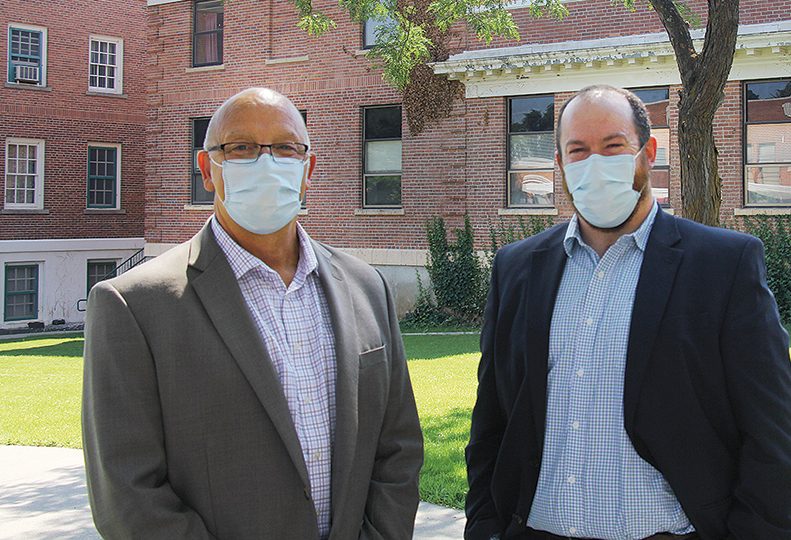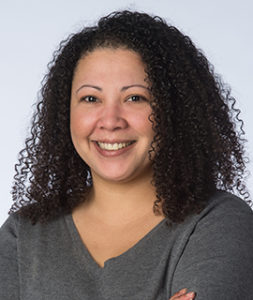
Home » Lakeland Village ramps up employee recruiting efforts
Lakeland Village ramps up employee recruiting efforts
New superintendent says habilitation center is hiring 200 employees

September 8, 2022
Tim Gerlitz, superintendent at Lakeland Village, a residential habilitation center for adults with developmental and intellectual disabilities, in Medical Lake, says stabilizing employment levels at the 283-bed facility is his No. 1 priority in his first year in the office.
Lakeland Village has 200 open positions to fill at the 50-building, 100-acre main campus, located at 2320 S. Salnave Road, where 600 full-time employees currently work, says Gerlitz, who joined the staff in February.
“Slowly but surely, we’re seeing an increase, though, especially in the last four months, as some of our recruitment efforts have been paying off,” he claims.
He says Lakeland Village’s recruiting committee has increased outreach at job fairs at college campuses and other venues in the community, including Fairchild Air Force Base.
Lakeland Village also is a training and testing facility for certified nursing assistants, which Gerlitz says is another way to attract and recruit medical staff to work there.
In addition to those hiring strategies, recruiting support also comes from a hiring center recently developed by the Washington state Department of Social and Health Services to help attract quality candidates to four state-owned residential habilitation centers, he says.
These efforts have brought in 12 to 18 new employees every two weeks since April, Gerlitz says.
However, other employees still are leaving due to retirement, relocation, or other opportunities, he adds.
“Usually, people in this field of work have a personal story or motivation for doing the work and that’s really what we’re looking for—people who are committed to working with people with disabilities,” Gerlitz says. “This is quite the noble profession.”
The facility employs physicians, nurse practitioners, nurses, speech pathologists, pharmacists, occupational and physical therapists, psychologists, dentists, dental hygienists and assistants, recreational department staff, vocational skills staff, as well as direct-care staff and attendants.
Starting pay for direct care providers and attendants ranges from $19.55 to $24.85 hourly, according to Washington state’s employment website. Salaries for management positions range from about $80,000 to $147,000 annually. Specialist technicians’ pay ranges from $3,000 to $4,600 monthly, and custodians’ pay ranges from $2,500 to $3,300 per month.
“We have a full commercial kitchen and a large janitorial program,” Gerlitz adds. “We have maintenance, and backup generators out here. We have our own water plant out here. … It really does take a village to run Lakeland Village. Everybody’s job is connected to what we do for the residents, and everybody is important here.”
Residents are referred for admission to Lakeland Village through the DSHS Developmental Disabilities Administration across Washington state.
There are about 155 residents receiving care in one of two programs: the nursing facility and the intermediate care facility.
The intermediate care facility staff helps residents develop social and professional skills designed to integrate individuals back into their communities to lead independent lives.
Assistant superintendent Brendan Arkoosh says, “We want (residents) to come here, receive the services they need, the training they need, and the support they need to be successful in the community of origin from which they came.”
The nursing facility program houses residents in a continual long-term care setting. They typically won’t transition out of Lakeland Village’s care due to co-occurring intellectual and medical conditions that aren’t served best in other residential settings, explains Arkoosh.
“We do take care of health issues as well for folks with complex medical conditions,” Arkoosh says.
The Lakeland Village staff helps residents with developmental and intellectual disabilities learn self-management skills and gain independence through comprehensive assessments and occupational and leisure training in a supervised medical setting.
Aside from caring for a minority of long-term residents at the nursing facility at Lakeland Village, Arkoosh explains, “Our whole focus is to identify barriers and provide training for residents to go live in a less restrictive setting like a supportive-living home, or an adult family home, or a group home.”
Lakeland Village was constructed in 1914 and two years later opened its doors to some of the residents at Eastern State Hospital, which at the time housed some people who didn’t require the psychiatric services offered by the hospital, located about a mile north of Lakeland Village, explains Gerlitz.
“It’s a unique population that doesn’t necessarily fit into a nursing home or a hospital setting as well as they do in a facility focused on them,” he adds.
For residents with an intellectual disability, training programs are designed to help skill-building through methods that make sense to them, Arkoosh says, adding, “It’s a more organic training style where we try to fit things into the natural rhythm of their day. It’s not run like a school.”
A substantial day program incorporates sensory and interactive techniques that help with sensory challenges and range of motion. The day program includes a massage center, a ceramics studio, a plant nursery, and music and arts centers.
Recreational activities on campus and at nearby Clear Lake offer additional opportunities for residents to explore their interests while fine-tuning social and motor skills.
Arkoosh says, “We’re really a training facility at heart. It’s very focused on providing a training in a manner (residents) will be able to retain and excel in.”
Ultimately, the goal is to staff a total of 800 full-time positions to work on the campus, which has over 490,000 square feet of space within buildings, Gerlitz says.
“I already retired once from the state of Idaho, and I had committed my entire career there to helping people with developmental and intellectual disabilities and behavioral health issues. And I’m not done yet,” Gerlitz says. “Working here is a good opportunity to transform lives and to work directly with people in a program that works.”
Latest News Special Report Health Care Government
Related Articles
Related Products



_web.jpg?1732178234)

